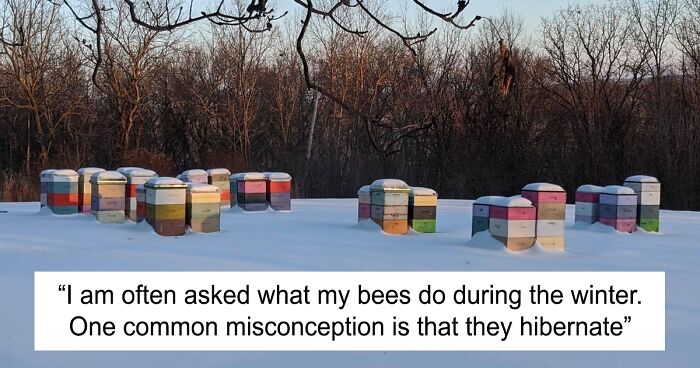
Beekeeper Shares What Bees Do To Stay Warm During Winter Because They Don’t Hibernate
Interview With AuthorBees are one of the most important insects of our ecosystem, pollinating nearly three quarters of plants that produce 90% of the world’s food. The data of the Food and Agriculture Organization of the UN showed that a third of global food supply depends on bees.
Moreover, bees have been around since the dawn of time, with our ancestors in ancient Egypt blowing smoke into hives and collecting the honeycombs. And as the practice is so old, everything about keeping bees should be crystal clear by now, but that’s not, in fact, the case.
This post shared by the Bell Farm in Runnells, Iowa has been going viral on Facebook with 13k likes and impressions, because it debunked a common belief that bees hibernate during winter.
“One common misconception is that they hibernate. In reality, they are very much awake inside their hives,” posted the farm and went on explaining what bees are up to during the cold winter season. Let’s read the whole post right below that is a perfect example of the wonders of nature we often know so little about.
More info: Facebook
Beekeepers from Bell Farm in Runnells, Iowa revealed that honeybees are not only awake in winter, but they also have a way to generate warmth
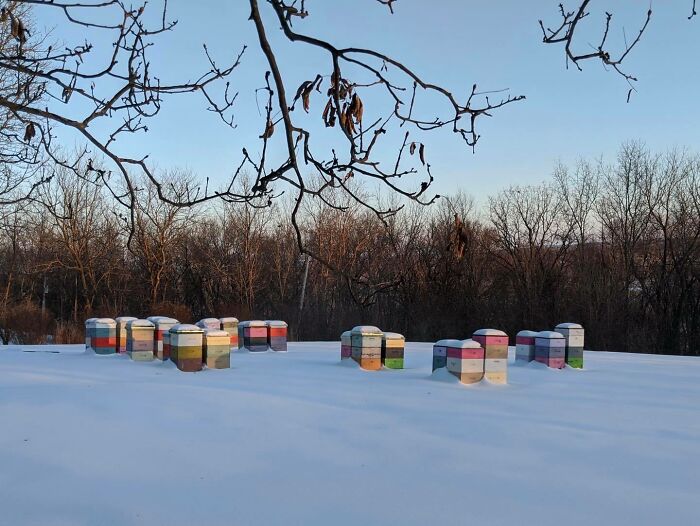
Image credits: Bell Farm
Bored Panda reached out to Ellen Bell, the owner of Bell Farm, a small, 10-acre farm located in central Iowa. Ellen, whose post about bees on Facebook went viral with 14k likes, said that she’s not entirely sure where the misconception about hibernating bees comes from.
“Maybe people figure that since they don’t see insects in the winter, they must be asleep somewhere? Honestly, I think the whole idea of what happens to bees in the winter is something that most people have never even stopped to consider.”
Ellen further explained that during the winter months, beekeepers must keep a close eye on their hives to ensure the bees have enough food. “We leave our hives with about 100 lbs of honey each to eat throughout the winter (that number varies based on climate; 100 lbs is what they need for our winters here in Iowa).”
Image credits: Latrobe Valley Beekeepers
On some occasions, “a colony will eat all their honey and then they can starve if they don’t have some type of emergency food.” This is where the beekeeper comes in as they make sure every hive has some emergency food. “I prefer dry sugar,” added Ellen. Check out Ellen’s video on how beekeepers feed bees dry sugar during winter.
Other winter tasks for beekeepers include education, like taking classes, attending seminars. “Beekeeping is a rapidly evolving field,” Ellen said. A whole average day consists of “bottling honey and making candles from our beeswax,” tasks that beekeepers usually don’t have time for in the summer months.
And people were totally amazed by it
The beekeeper said that there are many misconceptions about bees. For example, many people think that bees are aggressive, but Ellen assured that “honeybees, in particular, are incredibly gentle.”
She added that in summer, she usually works wearing a tank top and shorts, since bees never want to sting. “Once they sting, the bee herself dies. Stinging is a pretty big deal for the bee, and not an action she takes lightly.”
Another myth is that the queen is in charge. “Nothing could be farther from the truth. The queen lives at the mercy and will of the workers. They tell her where to go, what to do, etc. Queen bees are completely helpless; they rely on the workers to feed and groom them all the time.”
The queen’s only job is to lay eggs, which means around 2,000 eggs a day during summer when the height of the colony is the largest.
33Kviews
Share on FacebookBees are amazing creatures. Thank you very much to Bell Farm for the winter updates on our busy little friends.
Not to mention a keystone species. Plenty of other species depend on them.
Load More Replies...If anyone has a yard and loves bees try planting a Vitex agnus-castus tree. The bees LOVE the beautiful purple flowers that bloom multiple times a year. It sometimes looks like the tree is subtly moving due to all the bees flying around it. Monarch butterflies like it too!
Bees are amazing creatures. Thank you very much to Bell Farm for the winter updates on our busy little friends.
Not to mention a keystone species. Plenty of other species depend on them.
Load More Replies...If anyone has a yard and loves bees try planting a Vitex agnus-castus tree. The bees LOVE the beautiful purple flowers that bloom multiple times a year. It sometimes looks like the tree is subtly moving due to all the bees flying around it. Monarch butterflies like it too!

 Dark Mode
Dark Mode 

 No fees, cancel anytime
No fees, cancel anytime 




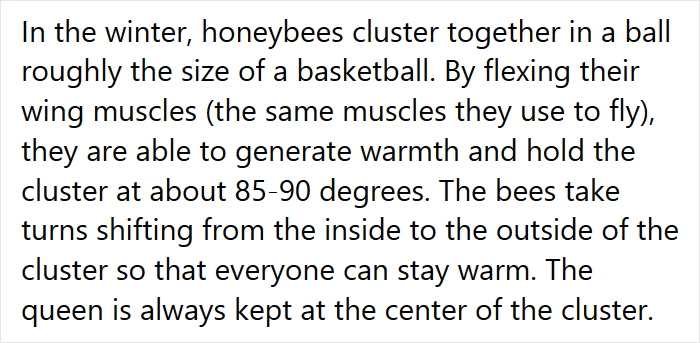

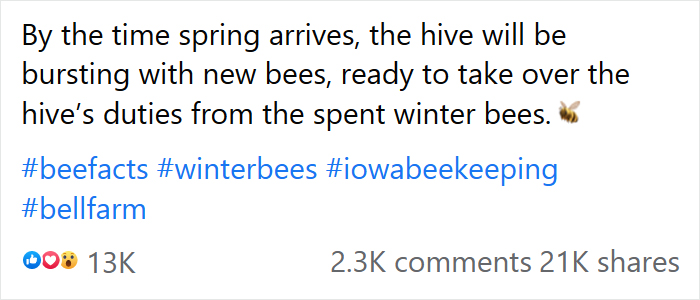
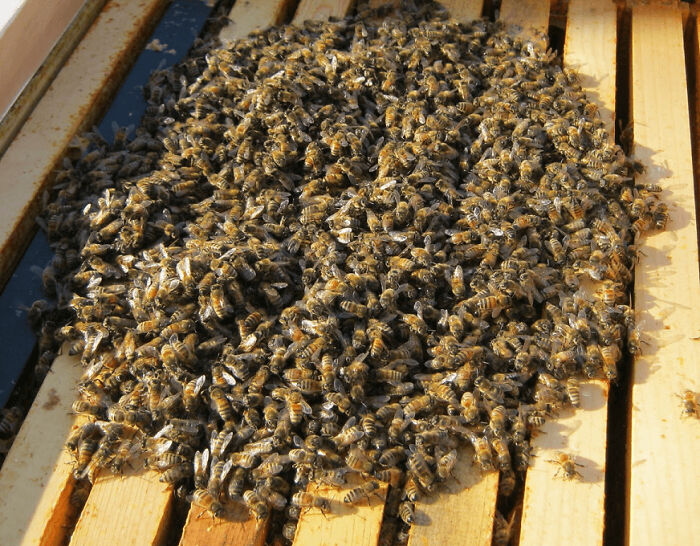


























































224
20